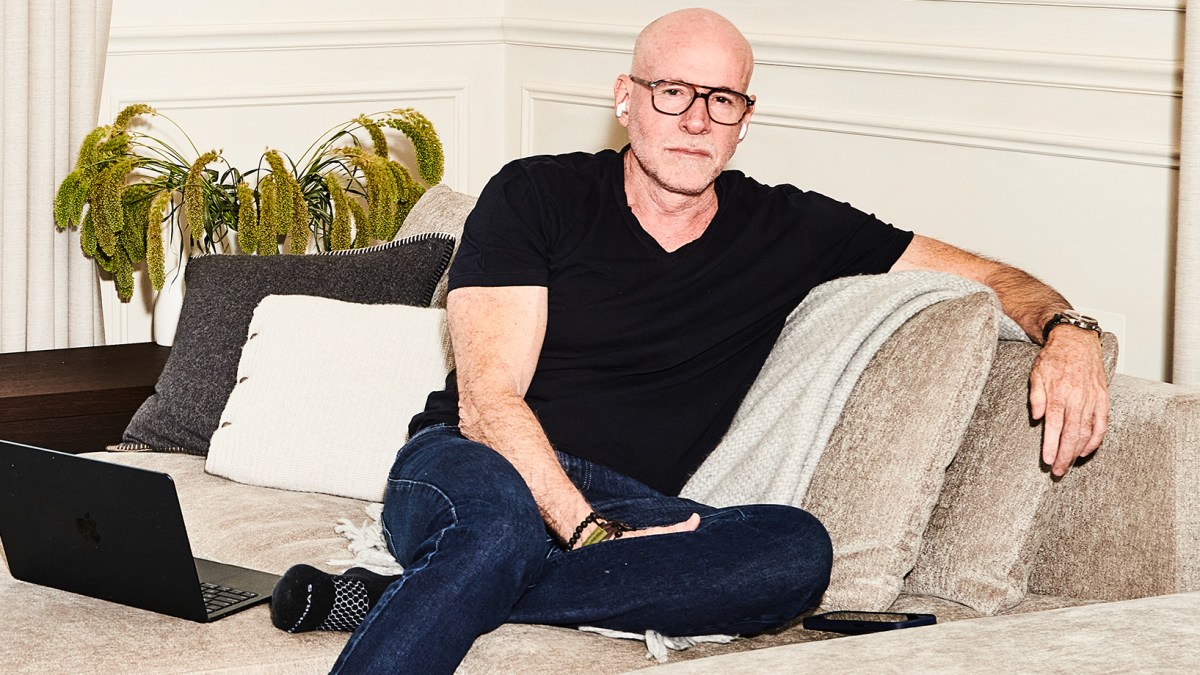Lifestyle
Scott Galloway Advocates for Empowering Teenage Boys’ Resilience

Scott Galloway, a prominent entrepreneur and academic, has raised alarm about the challenges facing teenage boys today. In a recent discussion, he emphasized the urgent need for young men to cultivate resilience, engage more actively with their environment, and reduce their dependency on parental support. Galloway’s comments come at a time when mental health issues among adolescents are increasingly highlighted, prompting calls for a shift in how society supports young males.
Galloway’s observations are not merely anecdotal; they are backed by various studies indicating a growing crisis among young men. According to data from the American Psychological Association, mental health issues such as anxiety and depression have significantly increased among this demographic in recent years. The entrepreneur argues that one solution lies in encouraging young boys to “toughen up” and face challenges head-on.
The Importance of Outdoor Engagement
Galloway advocates for outdoor activities as a means to foster resilience. He points out that spending time in nature can have profound benefits for mental well-being. “Young men need to get outside,” he stated. “Nature provides a setting where they can learn to confront challenges and develop problem-solving skills.”
Research supports Galloway’s stance. A study published by the University of California found that outdoor activities can enhance mood and reduce stress levels. By engaging with the world around them, young men can also build social connections, which are crucial for emotional health. Galloway believes that these experiences are vital for developing a sense of independence and self-reliance.
Galloway further emphasizes the importance of stepping away from technology. He argues that excessive screen time can lead to a detachment from reality, contributing to feelings of isolation. Instead, he encourages young men to participate in sports or outdoor adventures, which not only promote physical fitness but also nurture teamwork and leadership skills.
Reducing Parental Dependency
Another critical point raised by Galloway is the need for teenage boys to reduce their reliance on parents for emotional support. He posits that overprotective parenting can hinder young men’s ability to handle adversity and develop coping mechanisms. “Parents need to allow their sons to face challenges on their own,” he remarked. “It’s crucial for them to learn how to manage failure and setbacks.”
This perspective aligns with findings from various child development experts, who suggest that fostering independence in adolescents can lead to improved self-esteem and decision-making abilities. Galloway’s call to action includes encouraging parents to step back and allow their children to navigate difficulties without immediate intervention.
As discussions surrounding mental health continue, Galloway’s insights contribute to a broader conversation about the well-being of young men. His recommendations serve as a reminder of the importance of resilience, outdoor engagement, and autonomy in personal development.
In summary, Scott Galloway’s advocacy for empowering teenage boys through outdoor activities and reduced parental dependency highlights a critical issue impacting young men today. By fostering resilience and encouraging independence, society can better equip them to face the challenges of the modern world.
-

 World2 months ago
World2 months agoCoronation Street’s Shocking Murder Twist Reveals Family Secrets
-

 Entertainment2 months ago
Entertainment2 months agoAndrew Pierce Confirms Departure from ITV’s Good Morning Britain
-

 Health5 months ago
Health5 months agoKatie Price Faces New Health Concerns After Cancer Symptoms Resurface
-

 Health2 weeks ago
Health2 weeks agoSue Radford Reveals Weight Loss Journey, Shedding 12–13 kg
-

 Entertainment6 months ago
Entertainment6 months agoKate Garraway Sells £2 Million Home Amid Financial Struggles
-

 Entertainment5 months ago
Entertainment5 months agoAnn Ming Reflects on ITV’s ‘I Fought the Law’ Drama
-

 World3 months ago
World3 months agoBailey Announces Heartbreaking Split from Rebecca After Reunion
-

 Entertainment2 months ago
Entertainment2 months agoDavid Jason and Nicholas Lyndhurst Eye Reunion for Only Fools Anniversary
-

 Entertainment3 months ago
Entertainment3 months agoCoronation Street Fans React as Todd Faces Heartbreaking Choice
-

 World3 months ago
World3 months agoEastEnders’ Nicola Mitchell Faces Unexpected Pregnancy Crisis
-

 Entertainment2 months ago
Entertainment2 months agoBradley Walsh Sparks Strictly Come Dancing Hosting Speculation
-

 Entertainment2 months ago
Entertainment2 months agoTwo Stars Evicted from I’m A Celebrity Just Days Before Finale











